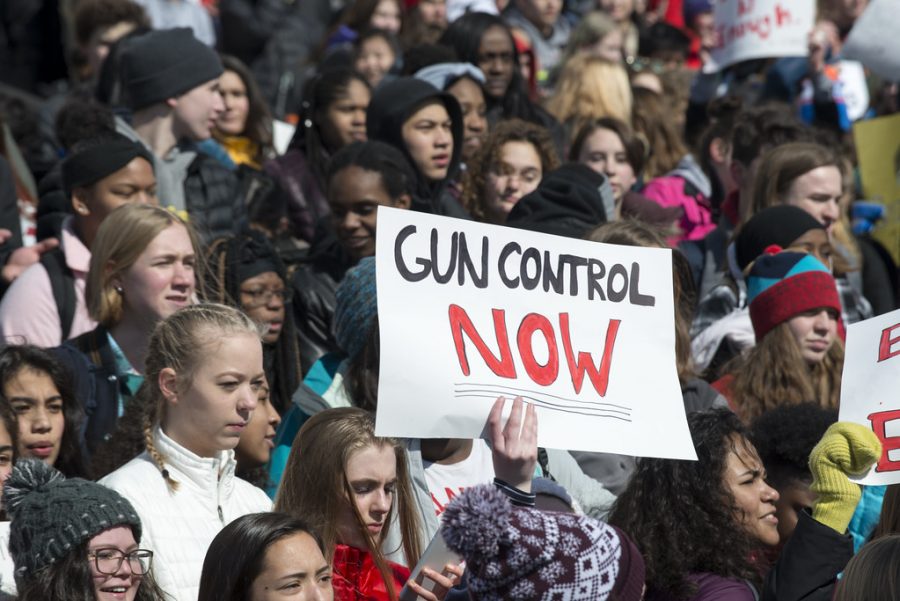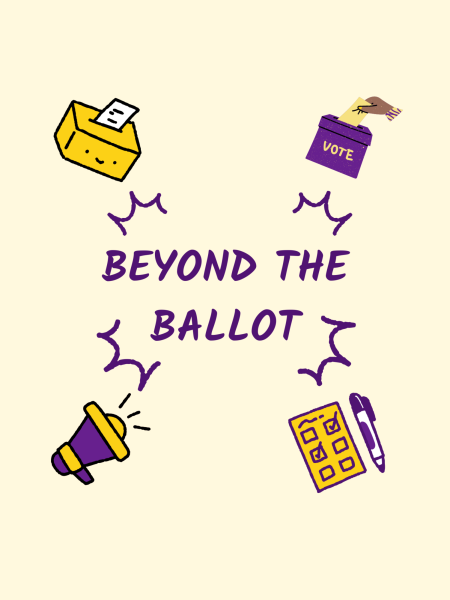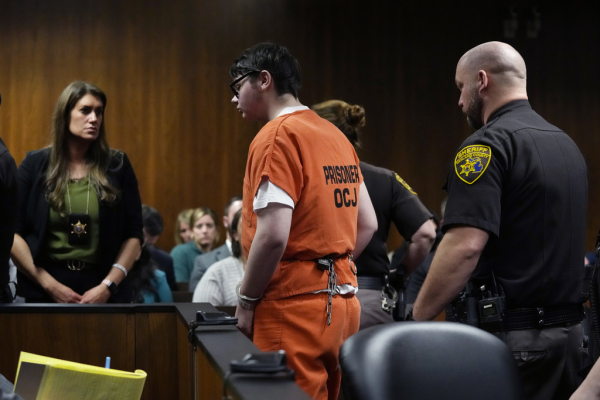Policy solutions debated amid spate of mass shootings
More than 147 mass shootings have occurred this year, with around 45 occurring in April so far.
The Second Amendment created in the early years of the United States ensures the right for a civilian to “bear arms.” In the current era, this is interpreted as ordinary people being permitted to obtain weapons with the proper license.
However, gun regulations have a long history of debate in the United States. Recently, the strong public urge for gun control around the nation has risen due to the numerous mass shootings this year.
More than 147 mass shootings have occurred this year, with around 45 occurring in April so far. Many of these mass shootings have resulted in the injury and killing of bystanders. One incident in Indianapolis on April 15 in a FedEx building caused multiple injuries and left eight dead.
In response to the public’s call for gun control, politicians in the federal government have introduced multiple bills in an effort to prevent these devastating events.
Part of the problem with gun control lies with the differing state laws. Each state has a unique set of gun laws. Assault weapons are quick and efficient firearms designed for battle. New Jersey banned the possession of them, but Colorado, where a shooting occurred in March at a Boulder supermarket, allows the purchase of assault weapons.
“I think [guns] should be regulated with extensive background checks,” Pascack Hills sophomore Amy Sheehan commented, “or don’t sell them at all.”
Some legislation in the past has successfully restricted the proliferation of guns around the nation.
The Violent Crime Control and Law Enforcement Act was a gun law enacted in 1994 that prevented the production of 19 different assault weapons. After the law expired in 2004, no other national law has been passed to regulate or prohibit the production of assault weapons.
Bills currently being introduced include universal background checks and measures to close loopholes in other legislation. One controversial measure being proposed is a ban on assault weapons and high-capacity magazines.
The main purpose of universal background checks is to ensure people who are buying these weapons do not have a criminal record and are mentally fit to have them. If the law is passed, background checks will be required for the purchase of a firearm, including those done through private sellers.
Other bills have the main focus of preventing people from buying firearms using loopholes in current legislation. For example, the “Charleston loophole” permits a person to buy a gun without a background check if it has not been finished after three days. Extending the period of time from three days to ten days for the completion of the background check is one way that lawmakers are trying to stop this loophole.
While many of these bills have been approved in the House of Representatives, they have yet to be passed in the Senate. In order for these laws to pass, both Democrats and Republicans must show support for it.
Democrats tend to favor more stringent gun laws and regulations compared to Republicans that support less strict ones. These differences in view are deeply rooted in the Second Amendment.
Different interpretations of the Second Amendment cause differing views about gun laws. Some believe many of these gun laws are too restrictive and violate the Second Amendment.
When compared to the universal background check bill, some view the proposed bill to restrict the manufacturing of assault weapons as a threat to the right to own weapons. Gun laws in the past, present, and future will have difficulty passing due to the Second Amendment.
Pascack Hills sophomore Aastha Shukla expressed her disappointment in the lack of gun control and the government’s conflict about passing these laws.
“I think it is unfortunate and frustrating that the government has not restricted gun proliferation [on a national level], especially considering the large number of mass shootings that are occurring.” She implored the federal government to take action “as soon as possible… to start saving the lives of innocent people.”

Sabrina Moe is a Hills senior. She joined the Trailblazer her sophomore year as a staff writer and edited for the In-Depth section her junior year. This year, Moe is eager to edit for the College Corner section and to manage college news among the Hills community.
Fun fact: Moe enjoys listening to various genres of music, especially music from the early 2010s.













































